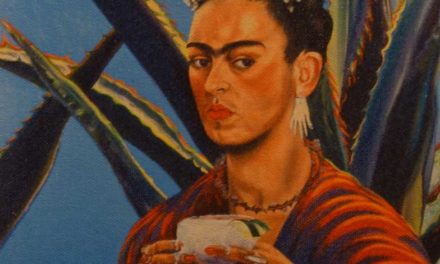Provided by Presa House Gallery
Born and raised in Brownsville, Texas, along the U.S./ Mexico border, Alejandro Macias received a Bachelor of Arts from the University of Texas at Brownsville in 2008, and a Master of Fine Arts in 2-D Studio Art from the University of Texas – Pan American in 2012.
His work has been exhibited nationally and internationally. Since 2016 he has been the recipient of numerous awards and recognitions including notable and prestigious residencies at Vermont Studio Center, Chateau d’Orquevaux in Orquevaux, France, The Studios at MASS MoCA, and most recently Wassaic Project in Wassaic, NY (2021).
He has forthcoming exhibitions at the Visual Arts Center at the University of Texas at Austin, Rockport Center for the Arts, Centro de Artes in San Antonio, and the Tucson Museum of Art.
He currently serves as an Assistant Professor of Painting and Drawing at the University of Arizona School of Art in Tucson, AZ.
Website: alexmaciasart.com
Instagram: @alex.macias.art
Twitter: @alexmaciasart
Artist Statement
“My most recent work brings to light a number of topics that not only reflect my own humanity as a Mexican-American, but a wider range of borderland and Latinx issues.
I draw my inspiration from many Chicana/o artists that have addressed and propelled issues of identity, repression, civil rights, immigration, and cultural misconceptions to a broader audience.
Coming from Brownsville, TX, along the U.S./Mexico border, I often think about the conflict and merging of two cultures. My conceptual ideas point out the struggles and dangers of the assimilation process, which can be seen as one of construction or erasure of history, heritage, and culture.
On a broader note, underrepresentation, misrepresentation, and misconceptions of marginalized people along the borderlands is evident across the United States. I explore this by investigating personal socio-political trepidations, and the struggle of migrants across the border. “
Macias will participate in an exhibition of his latest work next month at Presa House Gallery. His earlier work and the work of other artists exhibited at Presa House Gallery will be available for purchase this month at Presa House’s Small Scale Curbside Art Sale and Fundraiser that launched this weekend and will run til June 30.
 Due to the postponement of the June exhibition and the overall revenue loss suffered due to COVID-19, the gallery will be hosting a Small Scale Curbside Art Sale & Fundraiser. Over forty past, and future Presa House Gallery artists participated and submitted medium to small-sized works that are easy to carry off and priced to sell. The works will be available for purchase online at PresaHouse.com, and new pieces will be added throughout the month. The gallery will receive 30% to 100% commission on select art pieces, which helps support exhibitions and programming. Once you make your purchase, local curbside pickup or drop-off will be available. Curbside pickup, delivery, and shipping outside of the San Antonio area will be arranged via email. A variety of online and virtual programming, including an Instagram Live performance by Jose Villalobos at the Luna Ranch, a live screen printing session with Omar González, and the continuation of our Instagram Live Artist Studio Visit series will occur in tandem with the fundraiser. Community members can also order one of three Official Presa House T-Shirt designs, each available for purchase for $20 plus $6 for shipping.
Due to the postponement of the June exhibition and the overall revenue loss suffered due to COVID-19, the gallery will be hosting a Small Scale Curbside Art Sale & Fundraiser. Over forty past, and future Presa House Gallery artists participated and submitted medium to small-sized works that are easy to carry off and priced to sell. The works will be available for purchase online at PresaHouse.com, and new pieces will be added throughout the month. The gallery will receive 30% to 100% commission on select art pieces, which helps support exhibitions and programming. Once you make your purchase, local curbside pickup or drop-off will be available. Curbside pickup, delivery, and shipping outside of the San Antonio area will be arranged via email. A variety of online and virtual programming, including an Instagram Live performance by Jose Villalobos at the Luna Ranch, a live screen printing session with Omar González, and the continuation of our Instagram Live Artist Studio Visit series will occur in tandem with the fundraiser. Community members can also order one of three Official Presa House T-Shirt designs, each available for purchase for $20 plus $6 for shipping.
In these difficult and uncertain times, artists and the gallery need the support more than ever. The exhibition opens Friday, June 5, 2020, a 360° virtual tour of the exhibit, and a catalog of available works and the full list of participating artists can be viewed online at PresaHouse.com. Private viewings are available by appointment through June 27, 2020.
Event Link: www.presahouse.com/portfolio/june-2020 (note: Exhibit goes live June 5th)
Website: www.presahouse.com
Contact: (210)913-5842 or presahousegallery@gmail.com
About the Cover Art:
Body Pains
“The work is intended to address concepts of identity, highlight the dangers of the assimilation process, and the psychological trauma that comes from trying to embrace “Americanization.” – Alejandro Macias






